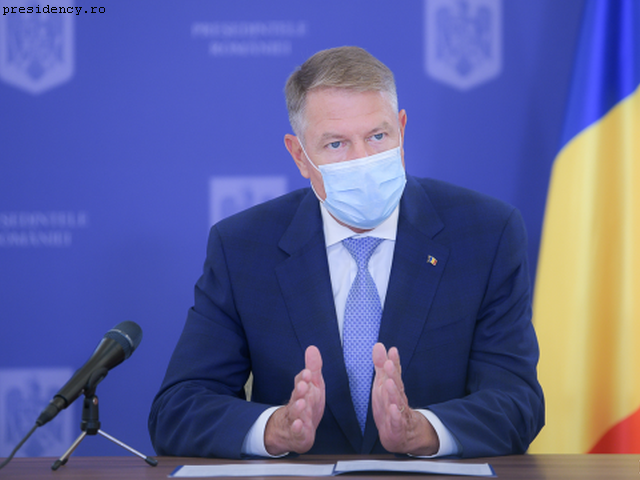More ICU beds for coronavirus patients
The country improves its capacity to treat severe coronavirus cases.

Ştefan Stoica, 28.10.2020, 14:00
An increasing number of counties and cities in Romania, where the critical treshold of 3 infections per thousand inhabitants was exceeded, are now in the red scenario. President Klaus Iohannis has warned that the epidemiological situation worsenes and a difficult period follows. In their fight against the disease, Iohannis explained, the authorities came up with a plan to increase the capacity of emergency care units in a number of cities.
Klaus Iohannis: ”The strategic plan for the next period includes clear stages of implementation and the opening of new intensive care units across the country, such as the ones in Oradea, Constanta and Craiova, in new locations or in facilities that will be turned into ICUs. I asked for data regarding the situation in Bucharest, and seven hospitas in the capital city will extend their intensive care capacity. I can tell you that in ten days at the most we will have an additional 123 beds in intensive care units.”
According to the President, there are over 3 thousand beds in intensive care units across the country. There are also five mobile ICUs and one intensive care module with a capacity of 169 beds. Health Minister Nelu Tataru reminded that eight mnths ago, when the first coronavirus case was confirmed in Romania, the country only had 740 intensive care beds. There are currently 1,200 ICU beds and there will be 1,400 in the upcoming period, the minister explained.
However, the Social Democrats, in the opposition, say that President Iohannis and the Liberal government have failed in managing the health crisis. Romania’s representative with the World Health Organisation, Alexandru Rafila, who has recently become a member of the Social Deocratic Party, says the situation is worrying and that a more proffessional approach is needed.
Alexandru Rafila: ”It is important to be able to increase the ability of the public healthcare system to identify the people infected, ensure easy access to testing and inform people on the procedure they must follow. It is also important for the medical system to treat all category of patients, not only coronavirus patients and, even more important, to ensure a proffessional communication and convince people that they are partners of the healtcare system and of the public system in general.”
State Secretary Raed Arafat, who has no political affiliation and who heads the Department for Emergencies, says that the problem of insufficient medical staff is pressing. (Translated by Elena Enache)






























